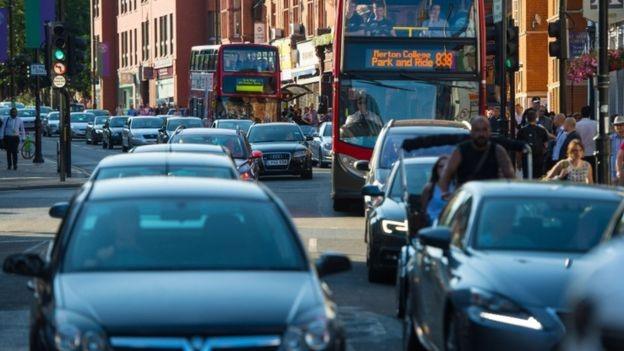Air pollution: Your practical solutions
- Published
SoICanBreathe is a week of BBC stories exploring some of the different ways people are seeking to make the air cleaner.
We asked you to tell us about what steps or suggestions you had for making a difference to air pollution.

Tree planting
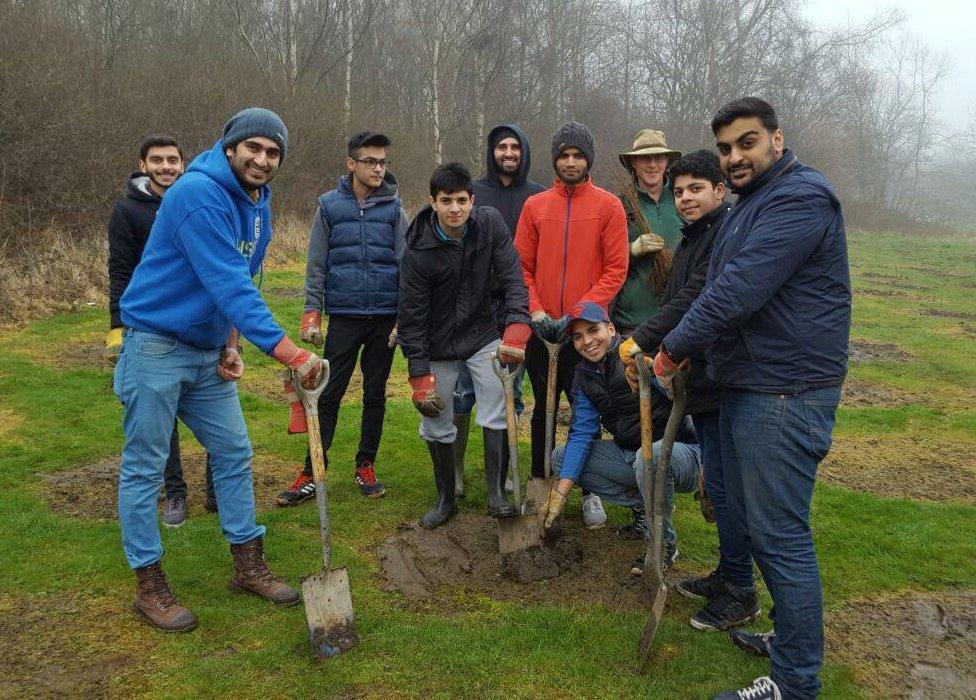
Members of The Ahmadiyya Muslim Youth Association have planted 20,000 trees in the last four months
Farhad Ahmad, 25, from the Ahmadiyya Muslim Youth Association in London, said the group had planted 175,000 trees in 16 areas across the UK.
"Looking at the figures, external, the 20,000 trees planted in the last four months, are equivalent to adding about 1,000 tonnes of oxygen and taking about 4,000 tonnes of carbon dioxide from the air," said Mr Ahmad.
A study by Dr David Nowak, senior scientist at the US Forest Service, has shown that trees only reduce urban air pollution by up to 1%. Yet even this small reduction can have huge health benefits.
"Using plants to absorb pollution definitely helps with air quality," said Tim Pryce, head of public sector at the Carbon Trust. "However, they do not have anywhere near the same impact as reducing the sources of pollution."
If you would like to plant a tree here are some tips.

Pay-to-ride bikes
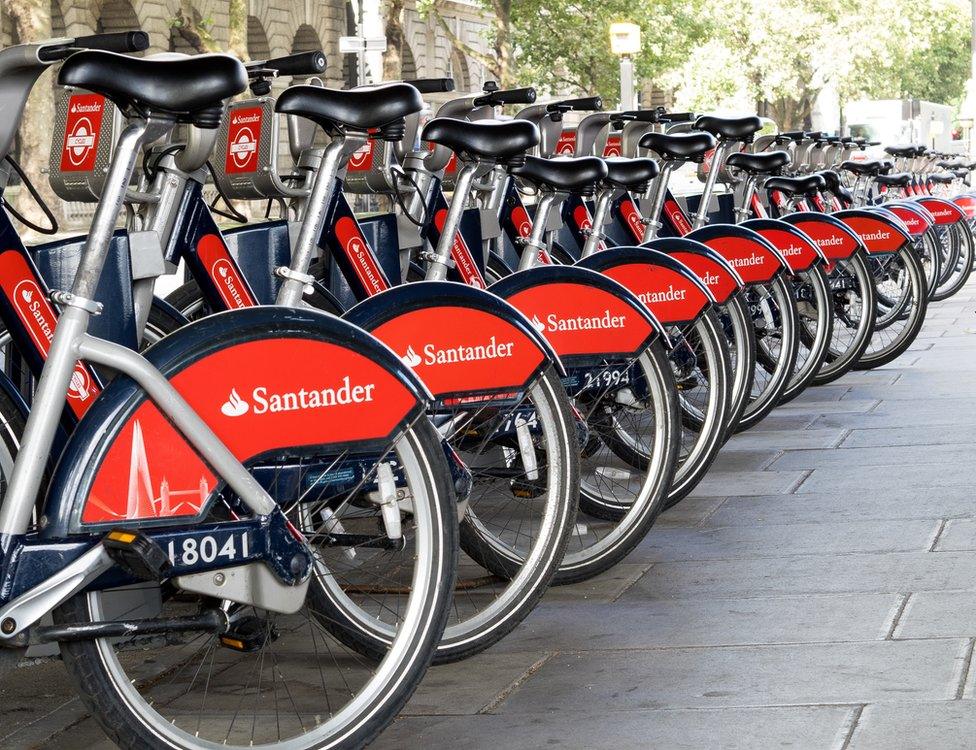
Cleaner behaviours such as walking and cycling have a big impact on the air quality in cities, the Carbon Trust said
Reader James Stanyer, 17, believes that cycling in cities is the way to go after he rented bikes in London and Milton Keynes.
"We need an extensive enrolment of pay as you ride bicycles in our inner cities across Britain, such as the Santander bikes," he said.
The latest statistics from Transport for London, external on its Santander Cycles showed that during the summer there were over a million hires a month, which dropped to 600,000 over the winter.
"To clean up the air in UK cities, the best thing to do is to reduce the major sources of pollution within city boundaries," said Mr Pryce of the Carbon Trust.
"And, while industry and building heating systems can be significant, especially in winter, the fumes from vehicle exhausts are by far and away the main problem."
He said "cleaner behaviours" such as walking and cycling could be used to target pollution.
"The key message from the TfL statistics is that these cycle hires will be displacing a proportion of journeys that would otherwise have taken place in cars/taxis," Mr Pryce said.

Rooftop gardens
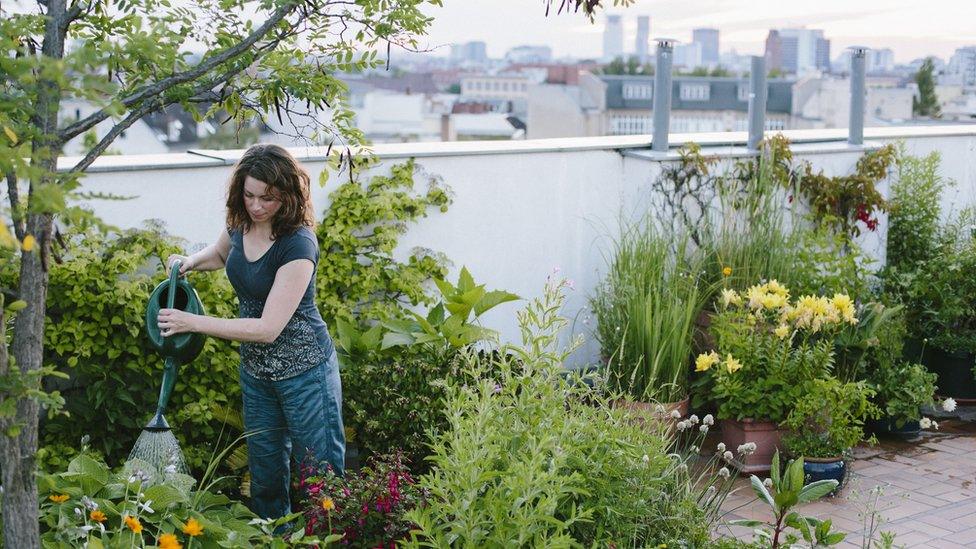
Rooftop gardens help clean the air, support urban wildlife and create better living spaces, said the Carbon Trust
Ema Gleaden, 24, from Nottingham, suggested creating more rooftop gardens.
She said she wanted to pursue a part time course in horticulture so she could create green spaces in residential and industrial areas.
"I think this would benefit the environment as it would cut Co2 omissions," she said.
"Restaurants could have their own herb garden, compost heap or even beehive up there.
"It would provide a green space for residents where they could relax, meditate and do laundry.
"Office spaces would provide a tranquil setting for workers who stare at screens."
Mr Pryce at the Carbon Trust said: "There are many reasons to encourage tree planting and rooftop gardens, they help clean the air, support urban wildlife and create better living spaces."

A lesson learned
Children from St Winifred's Catholic School in Lee had their own colourful ideas of how to stop polluting the air around us.
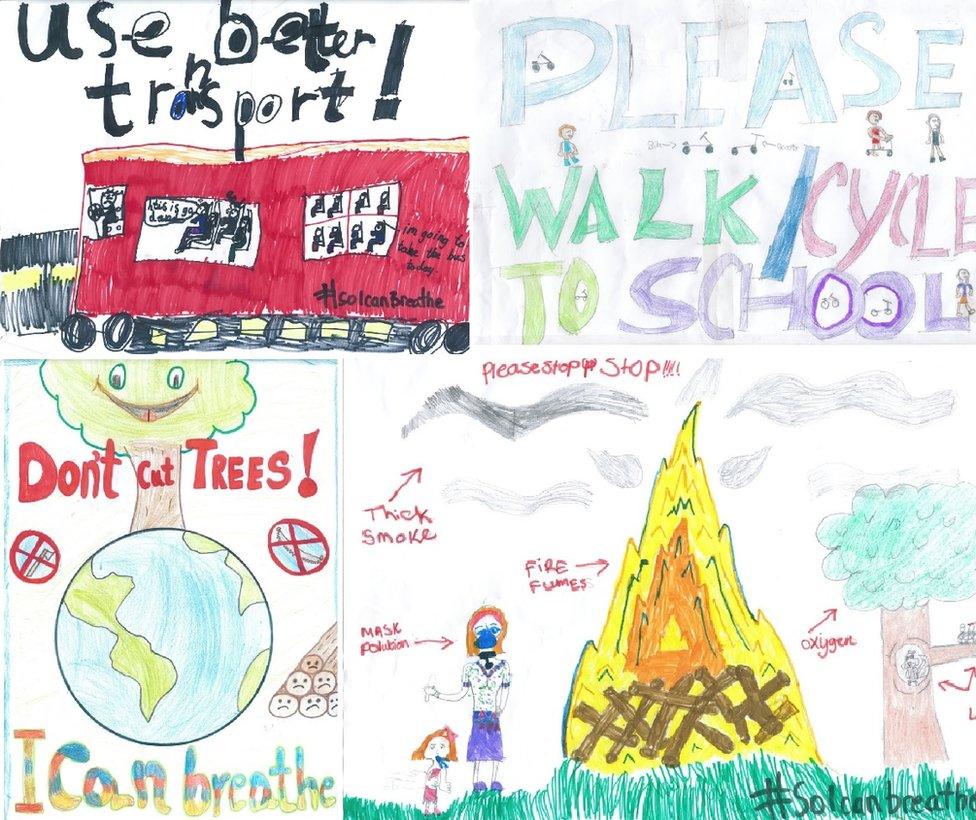
- Published10 March 2017
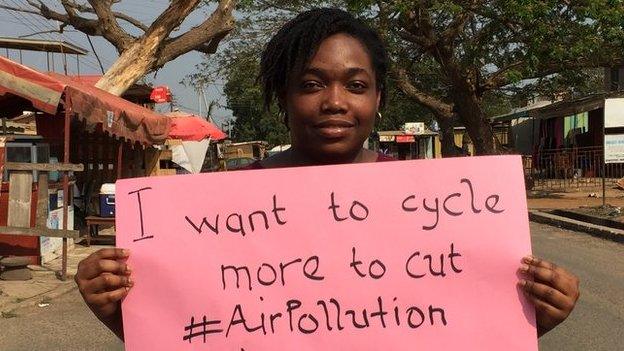
- Published7 March 2017
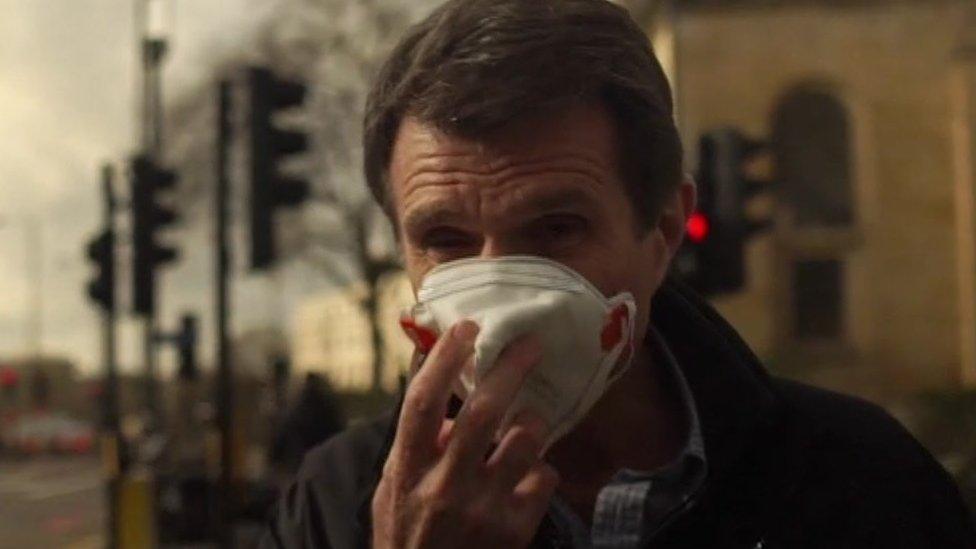
- Published6 March 2017
